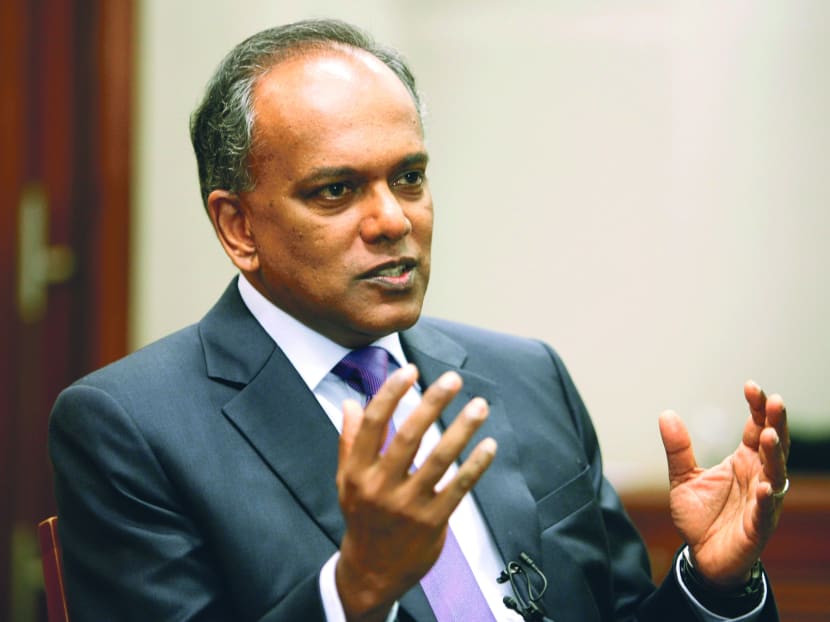Divorce procedures to be more efficient, ‘less adversarial’
SINGAPORE — Instead of filing lengthy affidavits filled with trivial grouses one party has with the other, aimed at winning over the judge in granting custody or assets, divorcing couples could — as early as the end of the year — be permitted to submit only a one-page document containing key information, such as their respective incomes.
SINGAPORE — Instead of filing lengthy affidavits filled with trivial grouses one party has with the other, aimed at winning over the judge in granting custody or assets, divorcing couples could — as early as the end of the year — be permitted to submit only a one-page document containing key information, such as their respective incomes.
Judges will also take on a more hands-on role in considering issues pertaining to the split, say, by personally enlisting the help of non-partisan experts, such as psychologists, rather than relying only on arguments by both parties’ lawyers.
These are examples of changes being mulled over by a committee looking at ways to minimise ugly, drawn-out tussles between estranged couples, Law Minister K Shanmugam disclosed yesterday.
“(There will be) a substantial simplification of the process, a substantial cutting down on the kinds of affidavits and allegations and arguments that need to be made ... significant increase in the role of the judge, less adversarial,” he said. “Instead of the lawyers arguing with each other and clients having to pay a huge amount, the judge takes a central role. Psychologists come in, counselling is given to support the children.”
Speaking at a National University of Singapore Society ministerial dialogue held last night, Mr Shanmugam said the objectives behind the review of the family justice system — by a committee co-chaired by Senior Minister of State (Law) Indranee Rajah and Judge of Appeal VK Rajah — are to make such legal proceedings more efficient, as well as better protect the children caught in the middle.
The review comes against the backdrop of a marked increase in divorces and family disputes here: Since 1980, divorce numbers have more than quadrupled to 7,237 in 2012.
Noting that family law cases under the current process can spiral into emotionally-charged fights, with parties tending to “add salt and sugar” in their claims, which have little utility in resolving the legal issues, Mr Shanmugam said: “Whatever little possibility of reconciliation, of taking care of children together, goes by the time all these allegations are put into black and white ... children (also) suffer because often children are forced to take sides.”
Elaborating on the revised role envisioned for family judges, the minister added: “He takes an interrogative role; a hands-on role, and then you can deal with it very quickly and very efficiently with the least amount of stress on the children and the parties. And it’s a much more sensible system.”
Mr Shanmugam also said the courts, lawyers and social service professionals will work more closely together to help families resolve disputes. For instance, he cited the possibility of the Ministry of Social and Family Development stepping in earlier when there are signs of familial distress or providing counselling support through the course of the legal proceedings.
The Family Justice Committee was set up last year to look at how to change the system into a “problem-solving” one.
Its recommendations are due by the end of this month, while the changes could kick in by year-end, said Mr Shanmugam.
Family lawyers TODAY spoke to agreed that there was a need to streamline the system and make the process less contentious.
Said Mr Yap Teong Liang: “There is sometimes a tendency for parties to relate the history and problems which may be relevant to the question of the breakdown of the marriage but are not relevant to the issue of the division of matrimonial assets or custody care, and control and access of the children.”
Mr Rajan Chettiar cited examples such as accusations over a small scratch on the child and feeding the child unhealthy food.
Ms Devi Haridas added: “That incident may have left an indelible ugly mark which, to the client, is a must-have to show the ugly attitude of the adverse party. That would trigger more such not-so-relevant but scarring incidents that the adverse party may want to float for the very same reason.”
On enhancing social support, Mr Yap suggested better education to direct parties to available options, while Mr Chettiar felt that counselling could kick in earlier, such as the moment a divorce writ is filed, to help the couple settle their emotions.
Association of Women for Action and Research Executive Director Corrina Lim said the hiring of lawyers could be a daunting episode and suggested simplifying the process to the extent that lawyers are not needed in less complex cases.
Fei Yue Community Services senior social worker Iris Lin added that there can be more comprehensive support for the families if the legal system and social services are better integrated, such as having a case manager overseeing the process.







